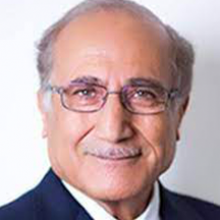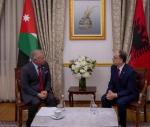You are here
Visits to build on
Sep 14,2015 - Last updated at Sep 14,2015
His Majesty King Abdullah has just completed a tour in the Far East covering two countries: China (the 1st economic power in the world) and South Korea (11th ranking economy).
The total GDP of the two countries, according to the latest 2015 estimates is $13 trillion, about 15 times the economies of the Arab League.
The King’s visit covered lots of grounds. He met with the Chinese and Korean presidents and other leading dignitaries of the two countries. He also inaugurated the Jordanian pavilion at the 2015 China-Arab States Expo in Yinchuan, where Jordan is an honorary guest.
The Royal tour also included visits and meetings with CEOs of renewable energy companies, Samsung, Hyundai and others, giant corporations that are now leaders in their respective endeavours, having overtaken, Nokia, Sony and even Apple in the telecommunication and electronic fields.
In car and renewable energy industries, Hyundai of Korea and Hanergy of China are further afield than many Western companies.
One must, however, make a distinction between the two countries as far as the Royal visits are concerned.
They may have been lumped together in the media coverage, but each had a life of its own.
China and Jordan have had prepared laboriously for the King’s visit. The Chinese ambassador declared that he was keen to see four projects concluded with Jordan.
Prior to that, Jordan was one of the first countries to subscribe to the China-proposed fund to finance infrastructure projects.
Moreover, Jordan’s geopolitical position makes it an integral part of the new Silk-Road project championed by China.
The framework strategic agreement signed by King Abdullah and President Xi Jinping ushers in a new stage in relations between the two countries.
President of Korea Park Geun-hye had shown her real mettle in facing North Korea over the killing of two South Korean border guards.
The standoff was finally resolved with North Korea retracting from its bullying position.
The Korean economy is estimated to reach $1.65 trillion in 2015.
It is now recognised as a new burgeoning economic powerhouse. We can learn a lot from Korea in Jordan.
To pledge investments of about $25 billion over the next 20 odd year is a great commitment.
The King’s visit has produced investments of about $32 billion over a long period.
Of course, we can and must be able to absorb more investments.
The railroad, renewable energy, mineral utilisation, water projects, including the Red-Dead Canal, new industries, etc., constitute a huge challenge for Jordan, and the King’s visit offered the opportunity to see them accomplished.
It goes without saying that Jordan’s investment paradigm and approach should change drastically.
Petty excuses, corruption-coated red tape and bureaucracy should not be allowed to continue.
To win investments, we need a more transparent and effective legislation, a more efficient and equitable judiciary, and a very robust investment commission.
Succeeding in attracting big investments means we succeeded in managing the economy.
The King’s commendable actions should be built on.
The writer, a former Royal Court chief and deputy prime minister, is a member of the Senate. He contributed this article to The Jordan Times.













